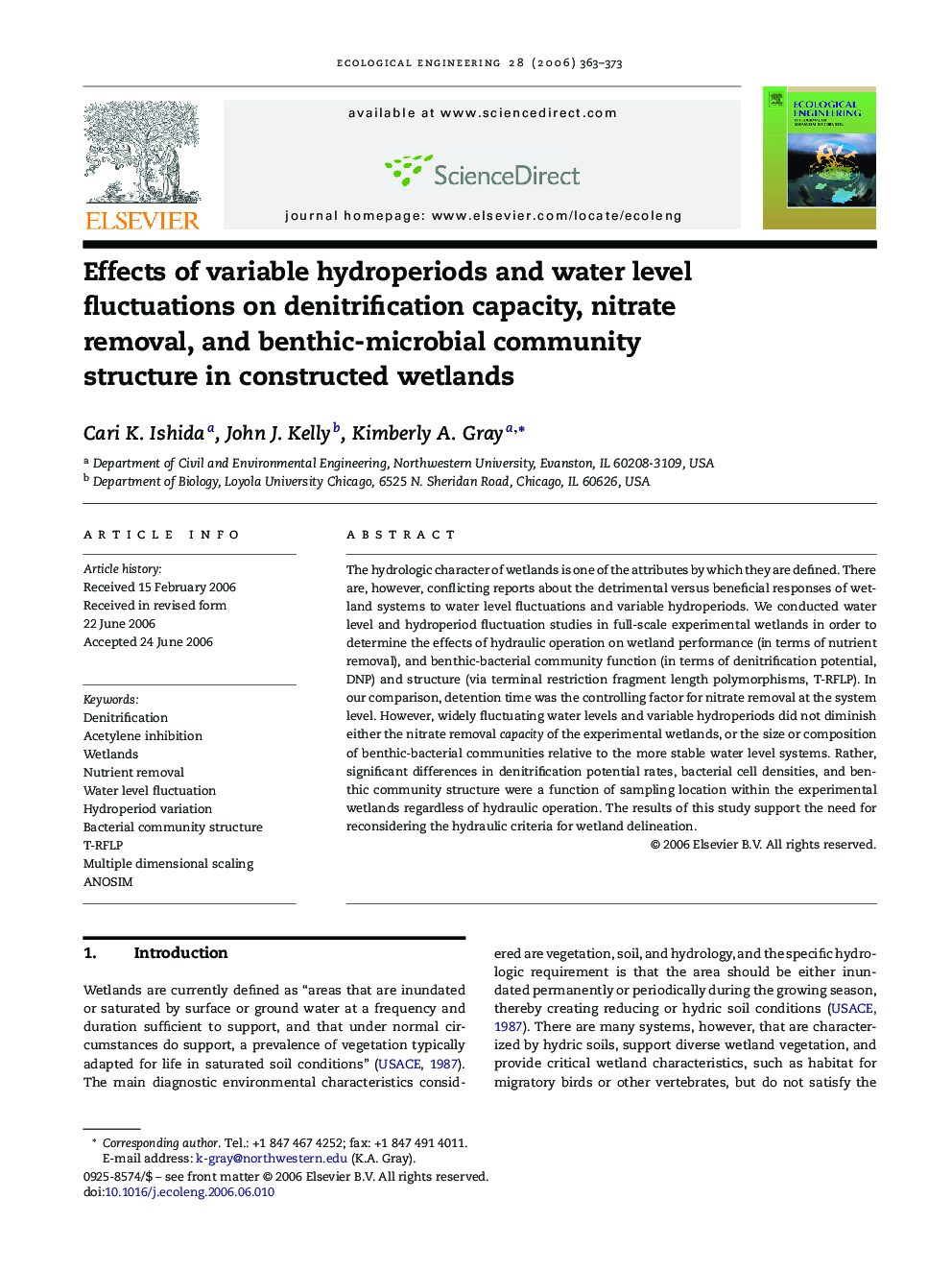| Article ID | Journal | Published Year | Pages | File Type |
|---|---|---|---|---|
| 4391143 | Ecological Engineering | 2006 | 11 Pages |
The hydrologic character of wetlands is one of the attributes by which they are defined. There are, however, conflicting reports about the detrimental versus beneficial responses of wetland systems to water level fluctuations and variable hydroperiods. We conducted water level and hydroperiod fluctuation studies in full-scale experimental wetlands in order to determine the effects of hydraulic operation on wetland performance (in terms of nutrient removal), and benthic-bacterial community function (in terms of denitrification potential, DNP) and structure (via terminal restriction fragment length polymorphisms, T-RFLP). In our comparison, detention time was the controlling factor for nitrate removal at the system level. However, widely fluctuating water levels and variable hydroperiods did not diminish either the nitrate removal capacity of the experimental wetlands, or the size or composition of benthic-bacterial communities relative to the more stable water level systems. Rather, significant differences in denitrification potential rates, bacterial cell densities, and benthic community structure were a function of sampling location within the experimental wetlands regardless of hydraulic operation. The results of this study support the need for reconsidering the hydraulic criteria for wetland delineation.
